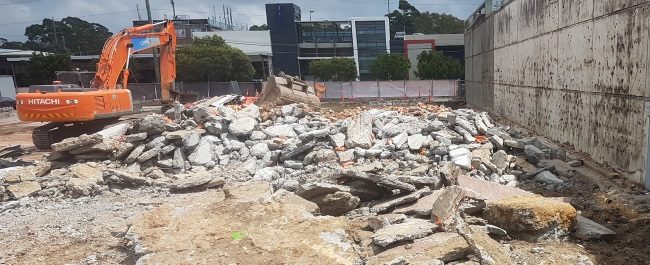Site auditors become waste watch dogs under new EPA Guidelines
The EPA’s changes to the Contaminated Land Guidelines place a heavier burden on site auditors to check on waste issues and sign off on waste management procedures.
Waste obligations for Site Auditors
The EPA’s new guidelines provide for more stringent waste management checks surrounding appropriate waste classifications and ensuring that documentation exists to prove lawful waste disposal or reuse. As the guidelines took effect in October 2017 without any transition period, site auditors have been required to immediately apply them to all existing and new audits from that time.
In particular, the waste management guidelines require site auditors to check that:
- waste has been appropriately classified in accordance with the EPA’s Waste Classification Guidelines and adequate justification has been provided for the classification;
- waste has been sent to a facility that is lawfully able to receive it. This requires a check of the environmental protection license or regulatory consent of the receiving facility to ensure it is able to accept the amount and particular class of waste;
- receipts for waste disposed off-site reconcile with internal records as to the volume of waste generated and transported;
- disposal of asbestos waste complies with the Protection of the Environment Operations (Scheduled Activities and Waste) Regulation 2014;
- any resource recovery orders and exemptions related to waste received off-site for use on the audited site have been complied with.
Non-compliance
Where auditors are not satisfied with the classification of the waste or if it has been taken to a facility that cannot lawfully receive it, the Site Auditor is obligated to notify the EPA in writing and direct the waste generator to rectify the non-compliance. A failure to notify can be classed as a criminal offence under the POEO Act while landowners or developers may be exposed to significant penalties if waste is managed, transported or dumped illegally.
Impact on Land Developers
Former industrial areas are commonly redeveloped into residential apartments. Many of these sites have a long history of contamination that require remediation in order to meet the environmental standards applicable for residential use. The new waste guidelines apply to any liquid or solid material that is disposed off-site.
To comply with the new guidelines, site auditors and contaminated land consultants need to work with landowners/developers to ensure development waste is managed and documented appropriately. In addition, the requirement for independent verification of waste management by auditors has increased the cost of site audits.
The upside of the new waste auditing requirements is that it will impact unscrupulous waste operators and provide greater opportunities for reputable waste contractors who want to do the right thing by the law and the environment.
Get Good Advice
A good understanding and appreciation of the cost associated with waste disposal is a key success factor when developing land. With landfill disposal rates in the order of $280 – $500 a tonne, it does not take much waste to impact on a project’s feasibility. Fortunately not all waste has to go to landfill, however, given current landfill rates, one can see the value of getting good waste advice before commencing a project.

